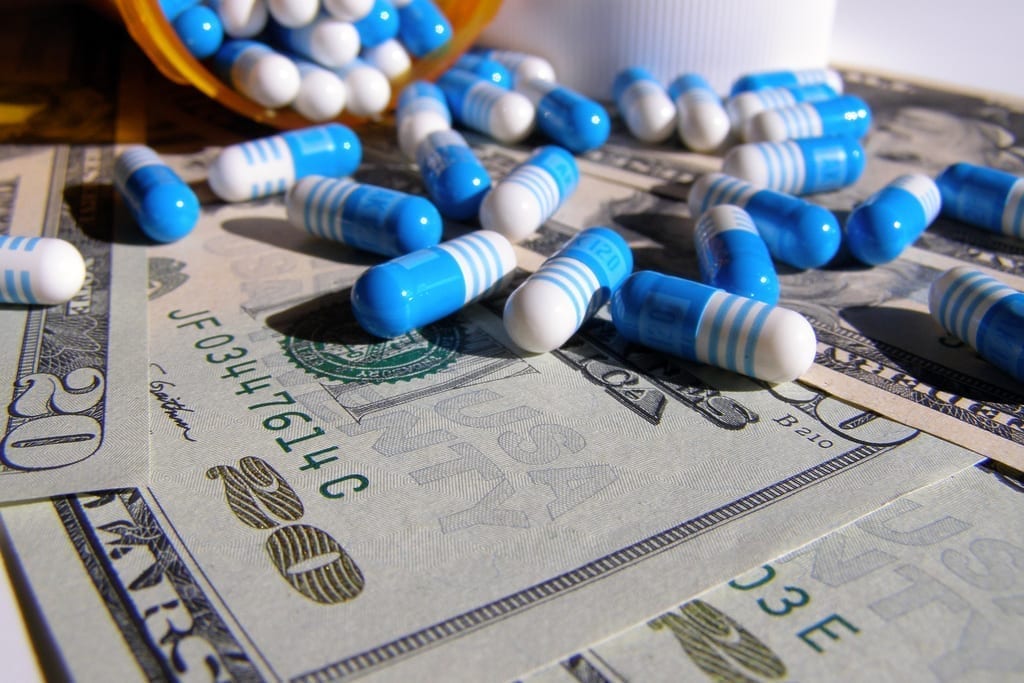Prescription drug prices are rising with no end in sight. What can be done to control costs while preserving care for as many people as possible?
Prescription drug prices are increasing so fast that you almost need to take drugs to cope with the stress of paying for them. What’s happening? Why are drug prices so high, and what are our options for stopping the insanity?
One of the promises that the newly elected President Trump made was to bring drug prices under control. Claiming that the pharmaceutical industry was “getting away with murder,” our wheeling and dealing new executive was going to bid on our behalf and make us such a deal. At the time, Trump even supported the traditionally Democratic position of allowing Medicare to negotiate drug prices with pharmaceutical companies. Now that he’s been in office for several months (although it certainly seems much longer), what kind of deals has our Negotiator in Chief made for us? Basically nothing. Instead, the White House has been concentrating on the drug industry’s wish list, such as extending overseas patents. It should come as very little surprise to anyone not still wearing a MAGA hat that the President says a lot of things he doesn’t mean, but which Americans want to hear.
The pharmaceutical industry has consistently been one of the most profitable enterprises in America. Why are prices still on the rise? One reason is that financial success funds political and regulatory success. Once a patent is in place, companies can charge what they like, and they (understandably) enjoy high drug prices. Raking in a mountain of cash means that they can make sizable donations to friendly politicians in exchange for lenient regulations. Pharmaceutical and health industry companies donated $4.5 million to Congressional election campaigns in the first half of 2017, including $100,000+ contributions to the likes of House Speaker Paul Ryan, Greg Walden (R-OR) who leads the House Energy and Commerce Committee, and Orrin Hatch (R-UT), chair of the Senate Finance Committee.
US Pharma Industry Converts Monopoly Power into Political Power, posted by TheRealNews
Another reason for high drug prices is, perhaps ironically, the Affordable Care Act. While “Obamacare” required prescription drugs to be covered as an Essential Health Benefit by all compliant policies, it also allowed insurers, through high deductibles and coinsurance, to expose consumers to more of the actual sticker cost of the drugs they need than did older, co-pay based flat fee policies. If you’re thinking that any of the half-baked “Trumpcare” plans offered as replacements for the ACA would lower drug prices, that’s highly unlikely from plans designed to further remove regulations on the pharmaceutical industry and embrace “free market” health care solutions.
So, what gives? Where can we go from here?
One perennial answer is to actually expose pharmaceutical companies to free market competition by allowing the import of lower priced drugs from Canada and other developed countries. The usual, tired old objections about drug safety and effectiveness could be addressed by licensing and regulating international drugmakers who want to sell their products in the U.S. Those crying big, saline tears about government involvement should remember that the government is what confers a monopoly on American drug companies. Senators Bernie Sanders (I-VT) and John McCain (R-AZ) as well as Representatives Elijah E. Cummings (D-MD) and Chellie Pingree (D-ME) introduced bills to allow Canadian drug imports this year, but they all seem to be stuck in committee.
Another way is to let the States experiment. Massachusetts is asking for federal permission to reduce the number of prescription drugs covered by their Medicaid program, although that only saves the state money, not the people who need medicine. A more promising bill in Ohio would require state agencies to pay no more than the Veterans’ Administration (which is allowed to negotiate for lower drug prices) pays for a given drug. Ohioans will decide the matter on the November ballot.
The most obvious way to pay less for drugs, though, is to not use as many of them. I don’t mean in the “choose to pay the rent rather than buy insulin” way, but in the “healthier lifestyles can require fewer medications” way. We can even choose, as a society, to dial back what we see as appropriate care. Many of the newer, more expensive drugs are not simple, small-molecule drugs that translate easily into generic versions, but large-molecule “biologic” drugs that are created in living organisms and are very hard to replicate.
How far is too far to go for bleeding-edge care that will only be realistically available to the very wealthy, but which needs research and development that is subsidized by everyday prescription sales? Even if we don’t make the choice to embrace simpler forms of medical care from back in the stone age 1990s or so, eventually Americans’ inability to cover normal living costs on minimal wages will make that choice for us down the road.
Related: Drug Copay Clawbacks are a Silent Scam


Join the conversation!